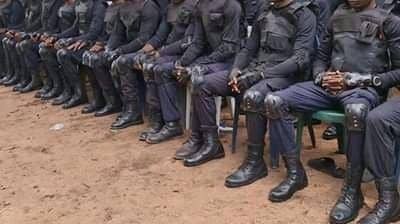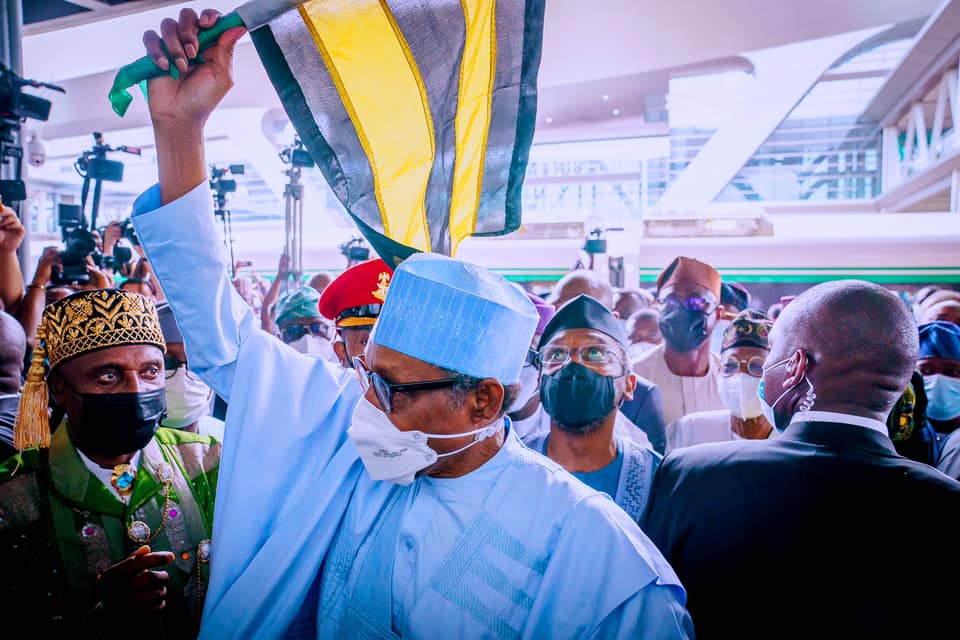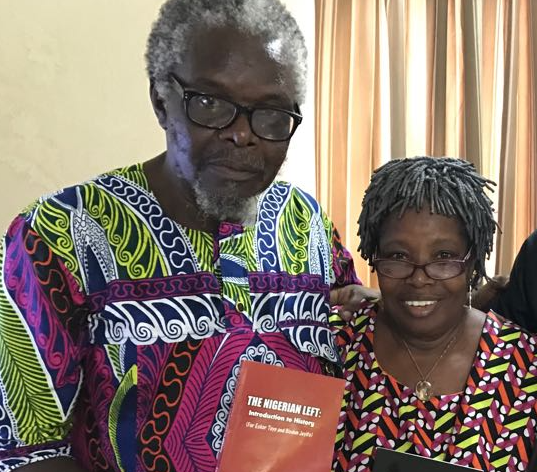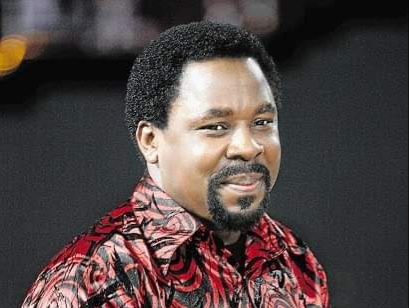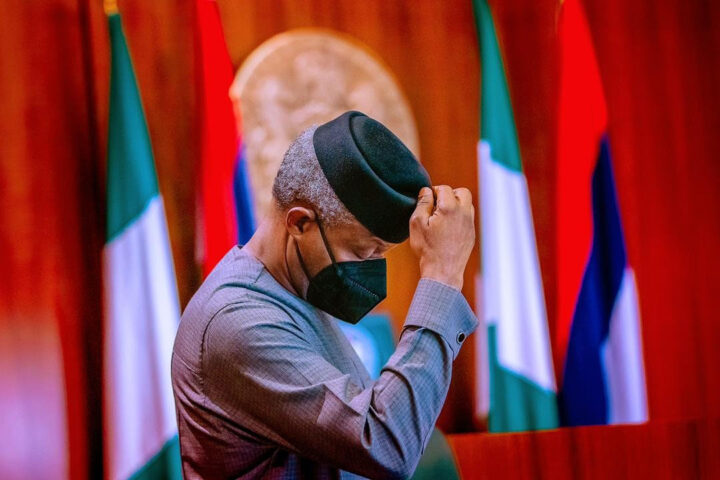Beyond the outburst of emotions which culminated in the deletion of the President, Major General Muhammadu Buhari (retd.)’s tweet by Twitter last week, that tweet does no credit to the capacity of government for positive engagement.
Some can argue that consensus-building has never been a strength of this regime and that Nigerians should be used to that by now. However, the regime itself should have learnt lessons from certain past experiences.
It is the same aversion to constructive conversation that led to the suspension of Twitter. Because the microblogging platform offended the sensibility of the President and not that of the country, every Nigerian, including loads of youths who make a living from it are dragged along into a needless confrontation they know nothing about.
Even now, many of our leaders pretend not to realise that tweets get reported for contravening the governing rules before they get deleted. Twitter respects the democratic rights of people to expression up to the extent that they do not trample on the rights of others, but leaders of the most populous black nation do not get that!
Advertisement
To be clear, events in the South-East now tend towards terrorism and that is unacceptable. It is also true that a responsible government should take actions to stem the tide. However, the big question here is about what appropriate steps government should take in the circumstance.
To curb the escalation of violence in this zone, which is the largest concentration of one of the major ethnic nationalities in the country, a government must be both responsible and responsive. This means that government must look at the issues that may have precipitated this hitherto unknown tendency in the South-East. It must, in addition, revert to national memory and recall similar experiences in the past, how they were dealt with and the results that followed these panaceas. Any decision taken without this sort of retrospection would be knee-jerk and most likely worsen things. A few events in our recent history support this hypothesis.
Between 2015 and date, the Federal Government has taken a couple of actions aimed at demobilising the Indigenous Peoples of Biafra. There was the clampdown on Radio Biafra; there was also the arrest of the group’s leader, Nnamdi Kanu; a series of military operations starting with the one referred to as Python Dance and then, the declaration of IPOB as a terrorist organisation.
Advertisement
At every point when these steps were taken, IPOB came out a little bit stronger and more devious than before. For example, in September 2017 when the Nigerian Army launched its Operation Python Dance II, the Eastern Security Network, (now referred to as the militant wing of IPOB) did not exist. Neither of the python dances nor the succeeding Operation Dance for Peace has eliminated IPOB and the philosophy it represents. On the contrary, the organisation has grown, even developing the capacity to sponsor the military training of thousands of people without the knowledge of any of Nigeria’s security agencies, if what we read earlier this week has any truth. Meanwhile, lives were lost and arrests made on many of these occasions.
The evolution of the Jama’atu Ahis Sunna Lidda’awati Wal-Jihad a.k.a. Boko Haram pretty much followed this same trajectory. Outright insurgency followed the mysterious death of its leader, Mohammed Yusuf, in police custody in 2009, after which Nigeria has not been the same. Readers will recall that this terrorist group started with the killing of law enforcement agents and destruction of government facilities.
Once upon a time, the Movement for the Actualisation of the Sovereign State of Bi led by Ralph Uwazuruike thrived in the South-East. In its heydays, MASSOB was as widespread as IPOB. Uwazurike, a graduate of Political Science and Law from two Indian Universities professed the non-violent posture of India’s Mahatma Gandhi and America’s Martin Luther King, Jr, but he incurred the wrath of the government, regardless. At some point in 2005, he was charged with treason and remained in jail for about 24 months. To cut the story short, while the Nigerian state seemed to have succeeded in breaking Uwazuruike’s spirit, the idea of the secession and sovereignty of eastern Nigeria which he preached has not diminished despite all acts of suppression by the state.
These experiences should tell Nigerian leaders that suppressing opposition in the manner Buhari threatened last week is almost always ultimately counterproductive. With the use of force, there would indeed be some immediate gains where insurgents, their family members and some innocent souls may be killed. But they go underground and come back to wreck more harm on society. This is what has happened with IPOB, where the ESN, which is now alleged to be responsible for the various attacks on national institutions.
Advertisement
Countries get this when, rather than face issues and address issues squarely, they push them under the carpet or devise authoritarian strategies to suppress dissent and stifle conversations.
The other issue is about how much reflection those in government have had about how we got here. For example, has there been a comparative analysis of how much sympathy IPOB had in 2015 and the groundswell of support that it currently seems to enjoy? Has the government tried to find a nexus between the country’s failure to respond to the helpless cries of Nigerians from different parts of the country and the resort to self-help?
Concerning this, Nigerians woke up to the news of yet another attack on Igangan in the Ibarapa Local Government Area of Oyo State on Monday. At least, 11 people were said to have been killed in this event where houses were also set on fire by people believed to be herdsmen. Reports indicate that the criminals operated unchecked for about four hours.
Earlier attacks on the community and its environment threw up the challenge of Chief Sunday Adeyemo, otherwise known as Sunday Igboho. Adeyemo is now championing the creation of a Yoruba nation and may lead an armed insurrection against the country if these killers continue without consequences. Hasn’t the federal government noticed this prospect?
Advertisement
Officials always say that the destruction of government property and attacks on law enforcement agents are acts of terrorism, and they are right. However, how do you describe the wanton killing of innocent citizens including children in cold blood, the molestation of their women and the destruction of private properties? Wouldn’t it be terrorism?
Benue State in the North-Central zone is another state that has been under incessant attacks without significant consequences over the years. Many parts of the South-East (as in other parts of Nigeria) have also faced killings from herdsmen and when government fails in its duties to the people, they would accept help from anywhere whether it is IPOB, the ESN or whatever! Even the Minister of Defence, Gen Magashi, recently called on Nigerians to defend themselves.
Advertisement
So, if the Buhari regime is honest with itself about Nigeria’s current circumstances, it will own up to its fault- the abandonment of its responsibilities in several ways. It will be humble and concede that a large percentage of Nigerians do not feel a sense of justice and fairness in their country, that there is too much insecurity than the regime is willing or possibly able to cope with- a reason for which the people have reached a breaking point.
Rather than (or at least in addition to) threatening military action, the regime would be engaging in conversations that can foster understanding and reduce tension in different parts of the country. It would take the problems of poverty, unemployment and the education of children and youth more seriously.
Advertisement
It is Buhari’s aloofness and failure to engage dispassionately with Nigerians at their different posts that have brought the country to this sorry pass where the centre does not seem to hold again. It is this same haughty disposition and failure to come down to the level of the citizens that may encourage more parts of the country to go up in arms and finally nail the coffin on the country called Nigeria.
Unless the regime quickly eats the humble pie and increases social interaction with the people, it would have more than the south-east to contend within just a bit of time.
Advertisement
Views expressed by contributors are strictly personal and not of TheCable.
Add a comment

